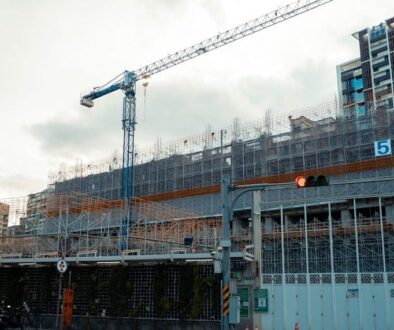Construction Bonds: Win More Bids and Avoid Pitfalls
To work on governmental or larger private projects, a builder will need to obtain construction bonds. While virtually all governmental construction projects require bonds, some private projects also require bonds. When a builder seeks to expand into these areas, it can be intimidating and confusing. There are many types of construction bonds, with each type serving a particular purpose. Builders are faced with not only obtaining multiple bonds, but also important financial considerations for the builder’s business along with possible personal liability. To help demystify bonds, we will briefly discuss bonding capacity, possible personal liability, and the different types of bonds.
Bond Capacity/Personal Liability
In general, bonds are agreements between three parties, the obligee, the principal, and the surety. The builder is typically the principal and promises that it will execute the work according to the construction contracts and make all required payments. The surety is a company licensed to write bonds and promises to pay or perform if the builder fails to do so. In most cases, the obligee is the owner of the property.
Importantly, surety bonds are not insurance policies. While an insurer expects there will be a loss and sets premiums accordingly, the issuer of a surety bond expects no losses. In a surety bond, a builder guaranties that if the surety pays any loss to the owner, it will reimburse the surety for that loss. As a result, the surety will only issue a bond if the builder’s business meets certain financial criteria, and the owner provides a personal guaranty.
Accordingly, if a surety is required to pay for a builder’s failures and the builder’s business cannot repay the surety, the surety will look to the owner’s personal assets as a source of repayment. The amount of a bond is determined by the contract amount of the bonded project. Thus, a builder’s bonding capacity limits the dollar amount of projects the builder can undertake.
Bonding capacity is the maximum amount of surety credit a surety company will provide to a builder. It is generally expressed as the largest single project the surety would be willing to issue and the maximum amount of contract backlog. A builder with a $5 million single/$30 million aggregate limit could get a $5 million bond for a single project, provided the backlog at the time of bidding is $25 million or less.
Bid Bond
When soliciting bids from builders for a project, owners that want to ensure the winning bidder will sign a contract as required in the bid documents may require that bidders obtain a bid bond. A bid bond is issued in favor of the owner and guarantees that the owner will be paid some or all of the difference between the winning builder’s tender and the next closest bidder, if the winning builder fails to enter into the contract required by the bid request. In many cases, the bid bond penalty is ten percent of the winning bidder’s tender amount.
Performance Bond
A performance bond secures the builder’s promise to faithfully and timely perform the construction contract. The purpose of a performance bond is to protect the owner from financial loss should the builder fail to perform. A performance bond frequently incorporates payment and maintenance bond liability. When payment bonds are issued with a performance bond, it is estimated that the premium will be between 1% and 2% of the contract amount.
Payment Bond
A payment bond guarantees the builder’s obligation to pay subcontractors, laborers, and material suppliers. Payment bonds provide assurance that the laborers and suppliers will be paid if the builder fails to do so. Because liens may not be placed on governmental jobs, the payment bond offers protection to those supplying labor or materials to such projects. The payment bond is a contract between the owner, the builder and the surety, to make sure that all subcontractors, laborers, and material suppliers are paid, which should leave the project lien free.
Maintenance Bond
Maintenance bonds are often required on state and public construction projects. A maintenance bond protects the owner of a completed construction project for a specified time period against defects and faults in materials, workmanship, and design that could arise later. Under a maintenance bond, if the builder fails to remedy problems related to workmanship, materials, or design during the maintenance period, the surety will pay for or perform the required maintenance and seek to be repaid by the builder.
Summary
Being able to bid on projects that require bonds can open new business opportunities for a builder. The attorneys at Brackett & Ellis, P.C. are here to help you navigate these bond issues.
Contact us or 817-338-1700 to let our experts guide you through the bond process.


